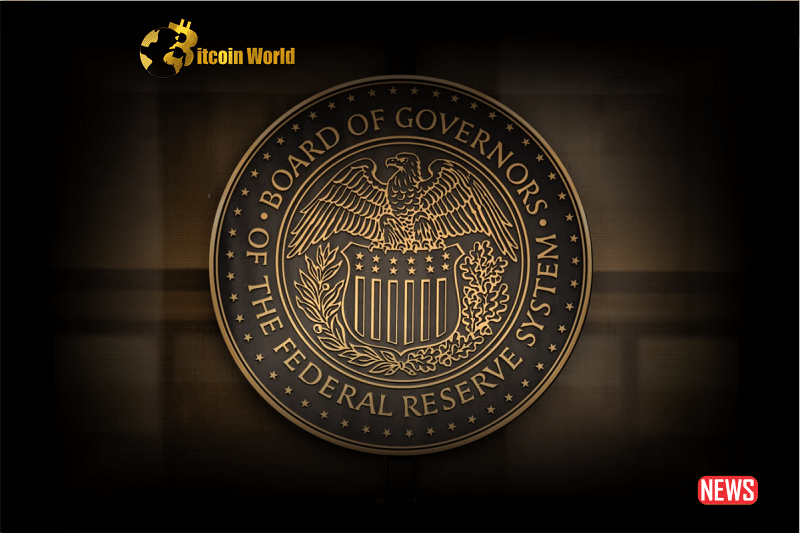Remember the era of near-zero interest rates? It might feel like a distant memory, but renowned economist Nassim Taleb believes the chickens are about to come home to roost. He’s sounding the alarm, pointing to the Federal Reserve’s (the Fed) decisions from 15 years ago as the potential source of significant financial pain for everyday Americans. Let’s dive into what Taleb is saying and what it might mean for you.
A Generation Raised on Easy Money: What’s the Problem?
In a recent interview, Taleb didn’t mince words. He highlighted how a whole generation of traders has grown up in a world where borrowing money was incredibly cheap. Imagine learning to drive only on flat, empty roads, and then suddenly being thrown onto winding mountain passes. That’s the kind of shock the financial markets might be facing.
Taleb argues that the Fed’s decision to slash interest rates to zero in 2008, while perhaps intended to prevent a deeper crisis, was a drastic measure. He suggests a more moderate approach, like lowering rates to 3%, might have been wiser. The problem with going all the way to zero? It leaves you with very little room to maneuver when you need to stimulate the economy later.
The Looming Consequences: What Can We Expect?
So, what are the potential fallout from this prolonged period of low interest rates?
- Higher Interest Rates are Here to Stay (For Now): Taleb believes Americans need to brace themselves for an environment where borrowing money costs more. This is a significant shift for those accustomed to ultra-low rates.
- Debt Levels are Sky High: Cheap money encouraged borrowing, leading to increased debt for individuals, businesses, and even governments. Servicing this debt becomes much harder when interest rates rise.
- The Real Estate Market Under Scrutiny: Taleb echoes concerns about the housing market. With mortgages now trending towards 7% after years of 3% rates, the affordability of homes is drastically changing. This could put downward pressure on prices.
- Startup Business Models at Risk?: Taleb points out that many startups have relied on readily available future funding rather than focusing on immediate cash flow. In a higher interest rate environment, securing that future funding becomes more challenging.
The Fed’s Role: Price Stability vs. Structural Reform
Taleb emphasizes that the Fed’s primary mandate is to maintain price stability. He argues that using monetary policy as a Band-Aid for deeper structural issues within the economy is a recipe for long-term problems. Essentially, you can’t just print money to solve fundamental economic challenges.
Is the Real Estate Market a Ticking Time Bomb?
With over a hundred trillion dollars tied up in real estate, the impact of rising interest rates on this sector is a major concern. Think about it: a jump from 3% to 7% on a mortgage significantly increases monthly payments. This can strain household budgets and potentially lead to a cooling, or even a correction, in the housing market. Are we heading for a repeat of past real estate woes? Only time will tell, but Taleb’s warning adds weight to existing anxieties.
What Can You Do? Navigating the Uncertainty
While Taleb doesn’t offer specific investment advice, his warnings suggest a need for caution and preparedness. Here are some actionable insights to consider:
- Review Your Debt: Assess your current debt levels and explore strategies to reduce them, especially high-interest debt.
- Budget Wisely: In an environment of potentially higher inflation and interest rates, careful budgeting is crucial.
- Be Cautious with Real Estate: If you’re considering buying or selling, be aware of the potential shifts in the market.
- Focus on Value and Cash Flow: For businesses and investors, prioritizing sustainable business models with strong cash flow might be a prudent approach.
The Unpredictable Timing of the Shift
Taleb acknowledges that predicting the exact timing of an economic downturn is notoriously difficult. However, he firmly believes that the combination of high debt, rising interest rates, and vulnerabilities in the real estate sector creates a precarious situation. It’s not a matter of *if*, but potentially *when* a significant economic shift will occur.
Conclusion: Heeding the Warning Signs
Nassim Taleb’s perspective serves as a stark reminder that past financial decisions have present and future consequences. His analysis of the Federal Reserve’s prolonged low-interest-rate policy highlights potential vulnerabilities in the current economic landscape. While the future is uncertain, understanding these risks and taking proactive steps can help individuals and institutions navigate the potential challenges ahead. Are you prepared for the economic reckoning Taleb foresees?
Disclaimer: The information provided is not trading advice, Bitcoinworld.co.in holds no liability for any investments made based on the information provided on this page. We strongly recommend independent research and/or consultation with a qualified professional before making any investment decisions.


